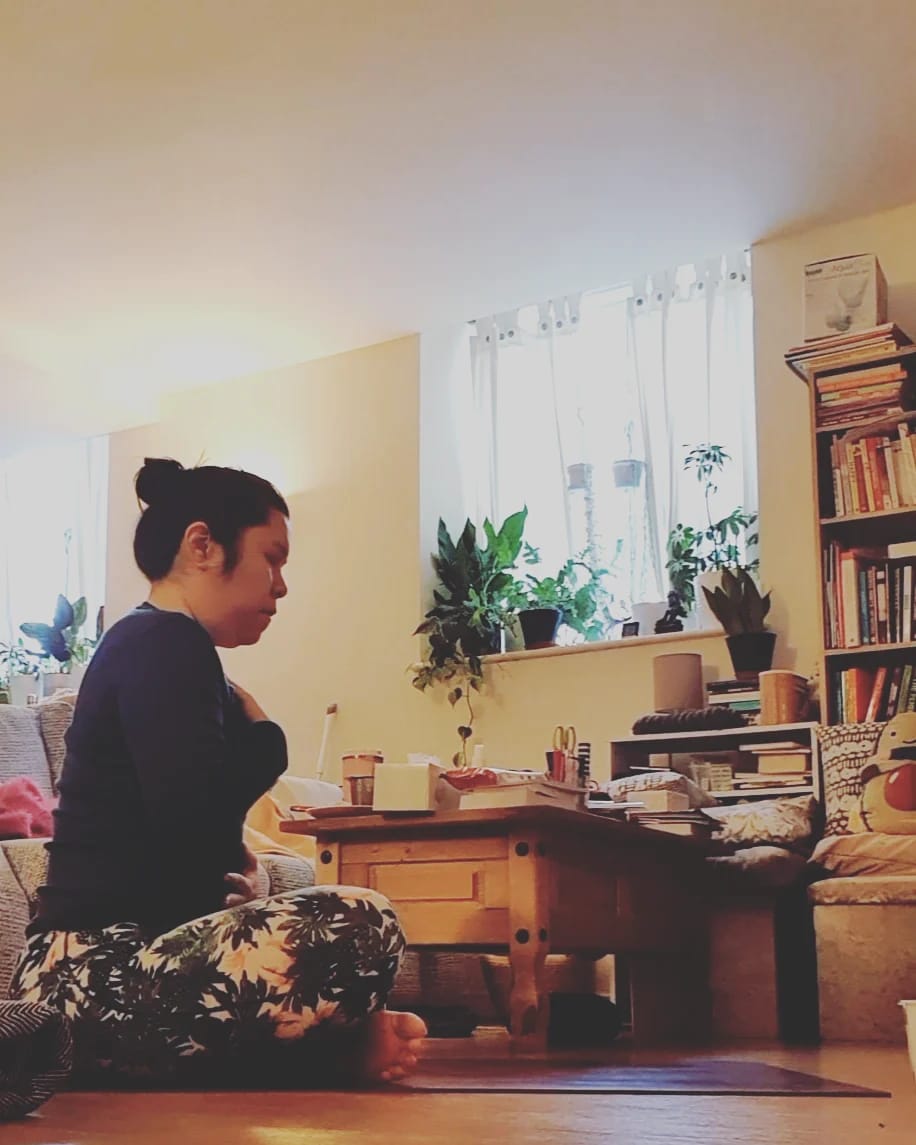It’s no secret that our bodies change as we age.
And yet, here I am at 39, feeling all kinds of surprise that my body just won’t do what I want her to anymore.
Having never had any interest in P.E. classes or sport, I only came to physical movement, exercise, and yoga in my late teens. When I discovered the gym, aged 19, I hit fitness hard.
As if to make up for lost time (and in a desperate frenzy to be thin), I did everything—cardio machines, weight lifting, strength training, high-intensity aerobic group classes, swimming, yoga, and running.
I loved it all, marveling at the unceasing ability of my previously unfit body to adapt, to get stronger and faster, to jump higher, lift heavier, and contort into all manner of yoga poses just for the sake of being able to say I could do it.
Then, life got in the way.
A series of unfortunate events meant that I couldn’t maintain my regular workout routine or yoga practice. I sustained a chronic knee injury that restricted my activity for years. I gained a ton of weight and my thighs got chunkier.
My body shed its skin several times round, squished and molded and reshaped itself into something I didn’t recognize anymore.
Almost 20 years later, I find myself on my yoga mat, completely befuddled as to why seemingly simple poses like Upward Bow or Bounded Side Angle are now so difficult to get into.
When I’m at the gym, I wonder why I tire quickly on the same cardio machines that I previously used as a mere warm-up. In all the moments in-between, I despair at how much longer it takes me to rest and recover from a lifting workout or a yoga practice.
I find myself facing the very real adage that often the mind is willing but the body sure is not.
In a world overrun by social media, where so much of our contemporary happiness and “success” seems to revolve around progress, accomplishment, before and after pictures, and doing doing doing, it is easy to feel that we have failed because we aren’t getting better at something.
So this is exactly where I am now, as I struggle to come to terms with why—after all these years of yoga practicing and gym-going—my “progress” seems to be going backward.
Why am I not getting stronger, more flexible, and fitter?
Then again, I wonder, is this what progress is like for me right now?
Perhaps I’m using all the wrong measures of progress; maybe the measurable gauges of how much weight I can lift, how long I can run for, or how far I can bend just don’t work anymore.
Maybe, instead, a deepening awareness of my body’s changing capacities and limits and a heightened ability to pay attention to what she feels and needs in a given moment are the new accomplishments my body should enjoy.
I am learning to return to my body anew. As I said in the opening of this article, our bodies change as we age, and I am learning to sit with that embodied reality, and be okay with it—no matter how frustrating it can be some days—as I deal with the need for prolonged recovery times and unfamiliar bodily aches.
My younger self strove every day to perform better than I did the day before, seeing moments of pause or ease as a sort of failure or degeneration. But I suppose most of us come to the realization at some point that this “all or nothing” mentality isn’t feasible or realistic.
A big part of progress for me today is understanding that just because I might need to take it a bit slower—to go for a walk instead of deadlift 100 pounds—it does not mean I have failed.
It just means I have a better understanding of where my body is and what it needs to feel fueled, nourished, and at ease; that a vigorous vinyasa practice can be just as worthy as a languid yin flow, or a hard lifting day can be just as good for my body as a restful evening on the sofa.
I have been learning to seek the moments of grace while I’m right in the middle of an especially clumsy, clunky, awkward moment.
I have been trying to give my body the easeful space to find her own way into the movement she needs, to abide in an easier yoga pose or lifting stance, with the understanding that taking a modification does not mean I am less “good” or my practice or workout is less valuable—to stumble about in a way that is not Instagrammable, but wholly right for my body in that instant.
Recently, I managed to trigger an old knee injury, which has forced me to put a long pause in my yoga practice. When I spoke to one of my yoga teachers about my frustrations about not being able to overcome this injury quickly enough, she reminded me, “I suppose this is your practice right now. Patience, compassion, and slowing down.”
For a gym bunny who used to take center stage—up front in the class, jumping faster and higher, and one step ahead of everyone else—receiving advice to slow down is a hard pill to swallow, even if that gym bunny is now almost 20 years older.
But this is part of progress, too.
This is grace for ourselves, our bodies, and for others who are also trying to find another way to navigate a world obsessed with constant movement, action, progress, and visible signs of success.
I end with the rest of what Chloe, my yoga teacher, said to me. She speaks about yoga, specifically, but I think this advice applies across all our endeavors; across our changing activities and goals as we age and as we allow life to happen; across everything we do to make ourselves feel better—whatever “better” means for us at the time.
“I suppose we get caught up in the idea that the yoga practice is about getting strong and fit and open. And I’ll never say that’s a bad thing! But when we’re injured or sick or tired, that idea of yoga just doesn’t work.
I suppose, we gotta think about what yoga is for. Or, what it’s about.
For me, it’s about feeling better or less stuck. Feeling more alive, more inspired, more joyful, more easygoing, and more connected to each other and the planet. It’s about feeling more love! And sometimes we just need to modify the practice. That’s cool.
Let’s do whatever we need to do, work on whatever we need to work on, to be more at peace, more alive, and more connected. That’s what the whole yoga thing is about.
You got this, Jamie. If you can learn to slow down through your practice, God knows how magical that might be for the rest of your life.”
So—patience, patience, and more patience.
I’m discovering slowly—ever so slowly—that sometimes, slowing down is the fastest way to move along.
~









Read 6 comments and reply